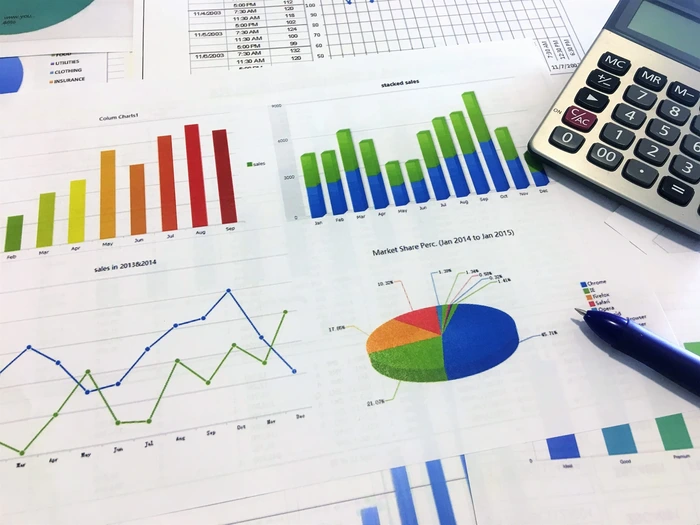According to MarketWatch, the global Web Scraper industry was valued at $142.3 million in 2021 and will continue growing for the rest of the decade. Businesses increasingly choose web scraping proxy services to gather financial data to improve their decision-making.
The global Internet provides opportunities to compare financial data worldwide at an unprecedented scale. If you know how to scrape financial web data, you can get real-time insights into your industry’s real market situation and compare prices with your competitors. Here’s how web scraping is changing routine financial institution processes.
What is Financial Data Web Scraping?
Web Scraping is an automated process of accessing publicly available web data, collecting it, and aggregating it for further analysis. Previously, this process was done manually by employees that wrote down the information by hand – a slow and human-error-filled process. Web scraping automates it gathering more data in less time and eliminating human error from the dataset.

Financial data web scraping involves:
- Gathering financial market information;
- Consumer sentiment;
- Global news related to business status and stocks;
- Monitoring market changes.
The vast majority of large corporations and financial institutions scrape the web to retrieve such information. For example, competing companies can get each other’s public stock data, news, user reviews, or LinkedIn information to form a better understanding of their success.
Most businesses scrape global prices to modify their service cost accordingly. They can monitor the competitor’s prices in real-time by having automated bots monitor this information online. They will mark and alert you of any price change, and you can respond as soon as you come up with a solution.
What Is Financial Web Data Scraping Used For?
Doing a global price comparison or in-depth market research are just two ways to use web scraping for financial data. Here are a few more financial data scraping scenarios:
- Venture capital funding. Investors can use data scraping to get huge amounts of startup data, including information from databases like CrunchBase. They can modify data scrapers to target websites in specific industrial branches and extract their performance criteria. They can then analyze a list of possible investment opportunities without spending countless hours gathering such information manually.
- Stock market data. Investment firms often use web scrapers to gather stock market data in real-time. The stock market is extremely volatile, and if you notice positive or negative changes faster, you can quickly act accordingly and gain an advantage. Investors scrape the stock market to get price predictions, investing opportunities, trends, and other related real-time data.
- Equity research. Each business does exhaustive research before investing, called equity research. Financial data scraping revolutionized equity research because now you can get gigabytes of publicly available company data ready for analysis. You can scrape businesses’ websites or LinkedIn profiles, employee reviews from sites like GlassDoor, and their official financial information. It will give you a better picture of their real financial situation and the worth of your investment.
- Compliance. Businesses that want to stay ahead scrape government and financial newspaper websites for important news and upcoming changes. Web scrapers can gather information from official websites, Twitter accounts, Telegram channels, or subreddits.

How to Use Proxies for Financial Data Collection?
Although many companies use web scraping, most do not like being scraped as they consider it a competitive threat. Simultaneously, they target competitor websites to access required data anonymously.
Web scraping often requires online proxies to rotate multiple IP addresses and prevent identification by a website. If a specific competitor notices your company’s IP address is making multiple data requests, they will blacklist it and ban it.
A proxy acts as an intermediary between your device and the Internet. It takes over online communication and uses its IP address instead of yours to channel the requests. Proxies can be configured to auto-rotate IPs at specific intervals so that you can make hundreds of requests to a particular domain without raising suspicion.
It’s always best to verify the website’s Robot.txt file to learn about its scraping policies. Unfortunately, web scraping has been given a bad name due to a few misuse cases. In reality, most successful businesses use proxies to gather financial data, providing better insights and more accurate investment opportunities.
Numerous proxy service providers specialize in collecting and aggregating Big Data. These services excel at legal data gathering and offer high-speed residential proxy networks to retrieve the data as fast as possible, even if it’s in a server halfway across the world.
Conclusions
Data scraping is revolutionizing the financial industry by providing access to unprecedented financial data. Furthermore, it makes the market truly global because worldwide businesses can learn about each other, compete or cooperate in their branches. Data scraping automates this process, removing human error and freeing time for more creative tasks.